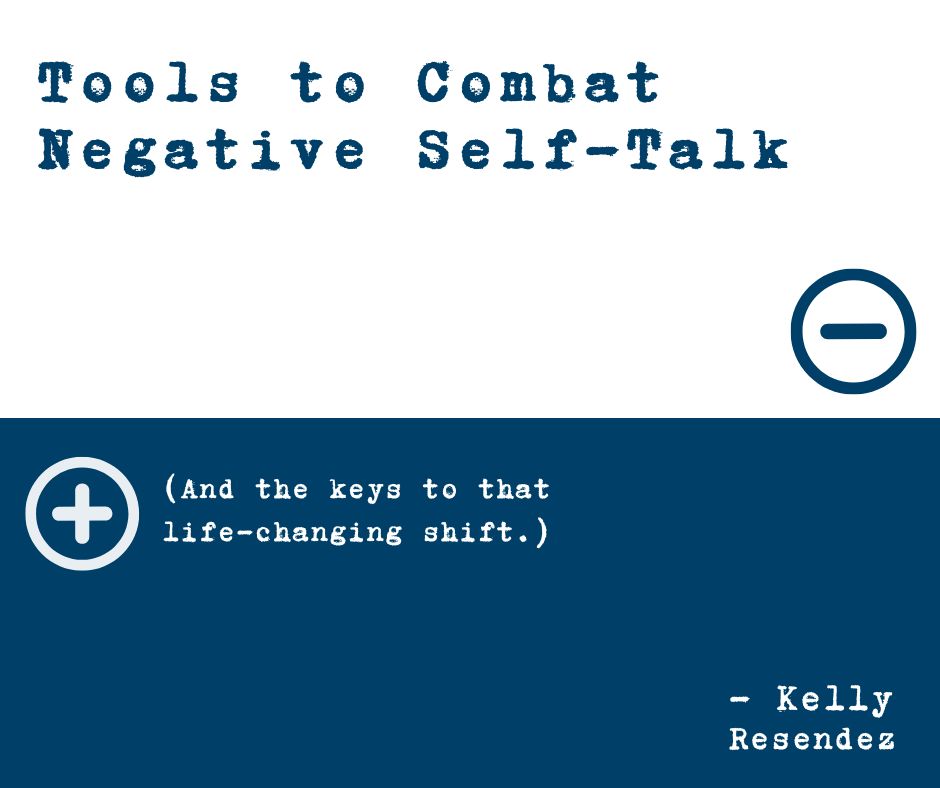
Effective Communication Tips for Work, Relationships, and Every Day.
June 12, 2024
How to Engineer a Blue Zone.
August 22, 2024
A while back, I wrote extensively about the power of our internal dialogue to shape our external reality, particularly the effect of negative self-talk in holding us back.
I received plenty of questions, comments, and feedback asking for more, so I wanted to dive deeper into this important topic today. But instead of just outlining the fundamentals around the mind-self talk connection, I will offer more concrete, actionable tips how you can identify negative self-talk and convert it to more positive dialogue and even affirmations.
Sure, this is a somewhat difficult process that can be uncomfortable at first, but with just a little desire and discipline, sticking to it means your new habit will completely alter your outlook, zest for life, and manifest amazing things..
The origins & consequences of negative self-talk.
First a short primer on the psychology and science behind negative self-talk that I didn’t cover last time.
Negative self-talk originates from our primitive brain and survival instincts. For our ancestors, this function kept us safe by triggering the fight, flight, or freeze response. This response, once crucial for survival, now often leads to anxiety and rumination over minor mistakes, reducing our effectiveness and increasing stress. In modern humans, this primal instinct often misfires, causing unnecessary self-doubt and anxiety, sometimes at extreme levels.
I documented the thoughts-to-behaviors-to-manifesting reality connection in my previous blog, but suffice to say that our thoughts influence and even determine our real world at every turn.
For that reason, excessive or unhealthy negative self-talk can lead to harmful behaviors such as elevated stress, questionable decisions, poor physical and mental health, and impacts relationships and our capacity to enjoy life. Furthermore, negative self-talk can lead to more serious concerns such as addiction, eating disorders, and even severe, harmful mental illness.
Trauma and getting “stuck” on inner dialogue.
We often see this pattern of drastic negative inner dialogue in trauma survivors, who have intensified negative self-talk through looping and rumination.
If any of these negative thinking patterns sound or feel familiar, you may be stuck in a trauma response of harmful self-dialogue, too:
- Jumping to conclusions involves drawing conclusions without any evidence.
- Exaggerating or minimizing means blowing things out of proportion or diminishing their importance.
- Catastrophizing refers to focusing on the worst possible outcome.
- Disregarding entails ignoring significant aspects of a situation.
- Oversimplifying involves labeling events as good or bad based on limited information.
- Overgeneralizing means viewing a single negative event as part of a pattern of defeat.
- Mind reading involves assuming others think negatively of you without any evidence.
- Emotional reasoning is basing conclusions on emotional reactions.
The key: it all starts with self-compassion!
So, no matter who you are and what you’re feeling or thinking, it’s important to challenge these unduly negative thoughts and replace them with positive counterarguments to regain control and improve self-esteem.
But instead of thinking of it as a strict exercise in mental discipline, it all starts with self-compassion. Yes, the old adage rings true here: if you talked to your friends the way you talked to yourself, you’d no longer have any friends!
So, self-compassion combats negative self-talk by treating yourself with the same gentleness, kindness, and benefit of the doubt that you offer to your friends and loved ones.
This is the key!
For once you start down the road of being more compassionate and forgiving with yourself, the effects are incredible. Identifying and controlling your negative thought patterns become easier (and even inevitable) once you make this emotional shift.
The effects of controlling your inner dialogue.
Just how powerful will this be in your life? What can you look forward to?
One prominent study of the effect of self-talk or inner dialogue on athletes found that positive self-talk actually improved physical performance by up to 11%.
Just think about if you performed better, more efficiently, and with better results by 11% in just about every aspect of your life!
But far more than just a one-time quantifiable benefit, think of the shift away from negative self-talk like an investment. Instead of making frequent withdrawals at the bank that keep you from ever getting ahead (negative self-talk), you’re instead making deposits.
Not only do these deposits of positive self-talk, self-love, and affirmation build up over time, but just like any good investment, they operate based on compounding growth!
So, once you make this transformative shift of depositing positivity into your thoughts and life instead of constant withdrawals and self-sabotage, the effects glowing, joyful effects will be consistent and exponential!
Open doors will lead to more open doors will lead to never before imagined opportunities and happiness in your life.
And it all starts with first identifying your automatic negative self-talk, and then turning the dial down on the frequency and intensity of those intrusions.
Strategies for reducing negative self-talk:
Different strategies can reduce negative self-talk. Here are some methods:
- Catch your inner critic.
Notice when you’re self-critical. Keep track of when it’s worse and all of the external and internal circumstances, conditions, etc. Even writing it in a journal is helpful.
2. Remember that thoughts are not facts.
Recognize that negative thoughts are most often highly biased and should not be considered facts or even necessarily valid.
3. Give your inner critic a nickname.
One of the effective methods of reducing negative inner dialogue is giving your self-talk a persona and even a nickname. Doing so will help you dismiss or even trivialize it, as well as de-personalize it.
4. Set limits on negativity.
Allow yourself to go through the process of self-talk but limit the duration and scope of negative self-talk, even setting hard limits on specific times or where you allow yourself to get away with it.
5. Turn down the dial from negativity to neutrality.
Changing negative to positive self-talk overnight is REALLY hard! So, try replacing intense negative language with neutral terms instead. Think of your negative dialogue as a dial, and you want to turn it down just a click or two at first, both in intensity and frequency.
6. Be your own friend.
As I outlined above, treat yourself with the same kindness you would offer a friend.
7. Say it out loud!
Verbalizing your inner critique quickly proves just how unreasonable and unwarranted it is, so feel free to do this when they arise – and then laugh them off!
8. Don’t try to fight it.
Focusing on stopping negative thoughts may just lead to you…concentrating on those negative thoughts even more. So, don’t fight them. Instead, allow them to rise up but then drift away just as quickly, like thought bubbles blowing away in the wind. Doing so takes the power and resistance out of those thoughts.
9. Practice gratitude!
Replace those negative critiques with a recount of all you’re grateful for in life. Gratitude is an incredibly powerful and transformative tool!
10. Try the 3×1 method.
I recently read of a tactic to counter negative self-talk by coming up with three positive attributes, wins, or experiences, etc. So, for every one “bad,” there are immediately three “good.” Over time, the good will far outweigh the bad and that negative dialogue will fade away!
***
I hope you find this information useful and incredibly helpful, so please email or message me if you have success with any of these tactics.
And thanks for reading and sharing!
– Kelly Resendez



